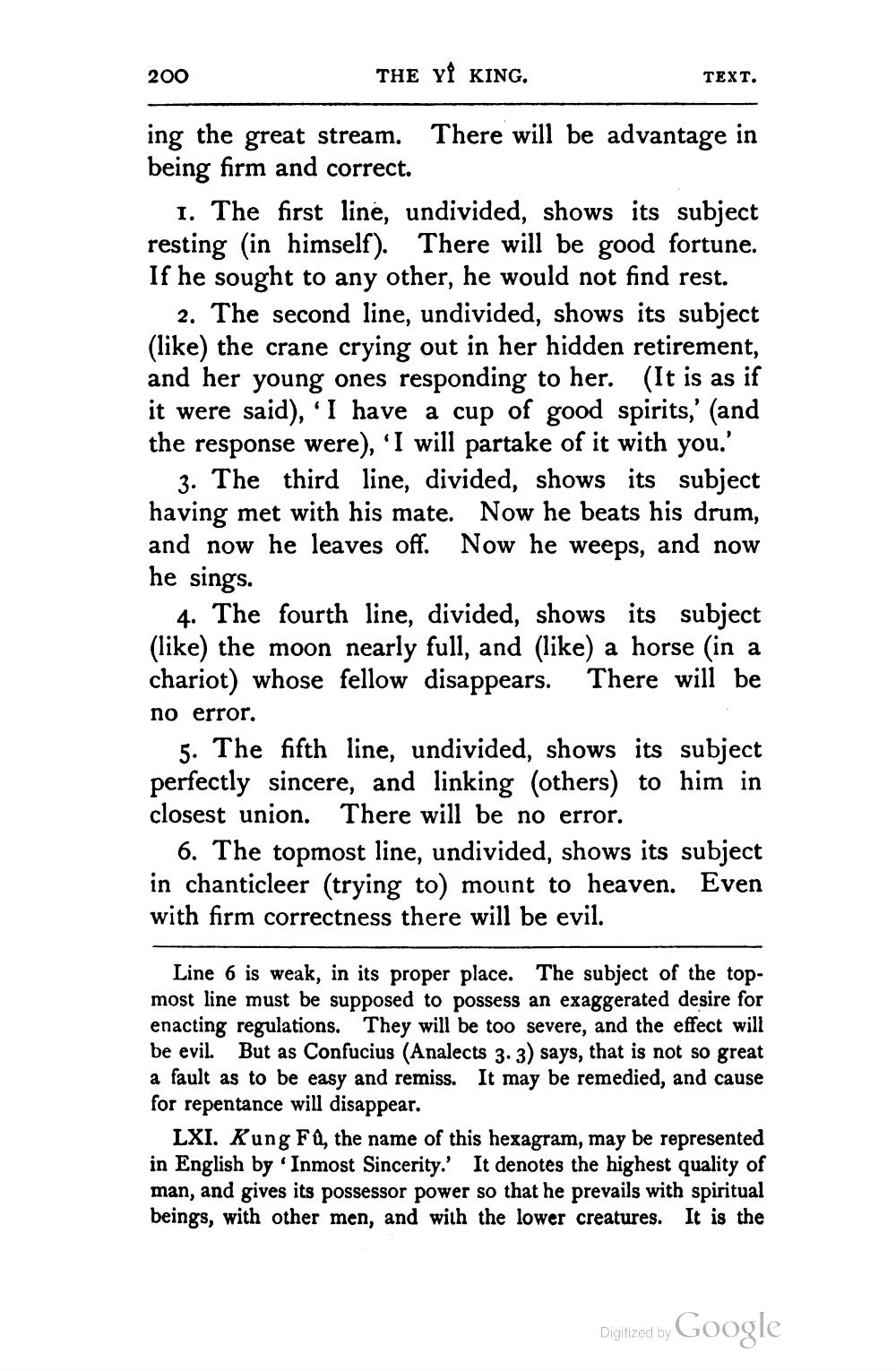________________
200
THE YI KING.
TEXT.
ing the great stream. There will be advantage in being firm and correct.
1. The first line, undivided, shows its subject resting (in himself). There will be good fortune. If he sought to any other, he would not find rest.
2. The second line, undivided, shows its subject (like) the crane crying out in her hidden retirement, and her young ones responding to her. (It is as if it were said), 'I have a cup of good spirits,' (and the response were), 'I will partake of it with you.'
3. The third line, divided, shows its subject having met with his mate. Now he beats his drum, and now he leaves off. Now he weeps, and now he sings.
4. The fourth line, divided, shows its subject (like) the moon nearly full, and (like) a horse (in a chariot) whose fellow disappears. There will be no error.
5. The fifth line, undivided, shows its subject perfectly sincere, and linking (others) to him in closest union. There will be no error.
6. The topmost line, undivided, shows its subject in chanticleer (trying to) mount to heaven. Even with firm correctness there will be evil.
Line 6 is weak, in its proper place. The subject of the topmost line must be supposed to possess an exaggerated desire for enacting regulations. They will be too severe, and the effect will be evil. But as Confucius (Analects 3. 3) says, that is not so great a fault as to be easy and remiss. It may be remedied, and cause for repentance will disappear.
LXI. Kung Fu, the name of this hexagram, may be represented in English by 'Inmost Sincerity.' It denotes the highest quality of man, and gives its possessor power so that he prevails with spiritual beings, with other men, and with the lower creatures. It is the
Digitized by Google




